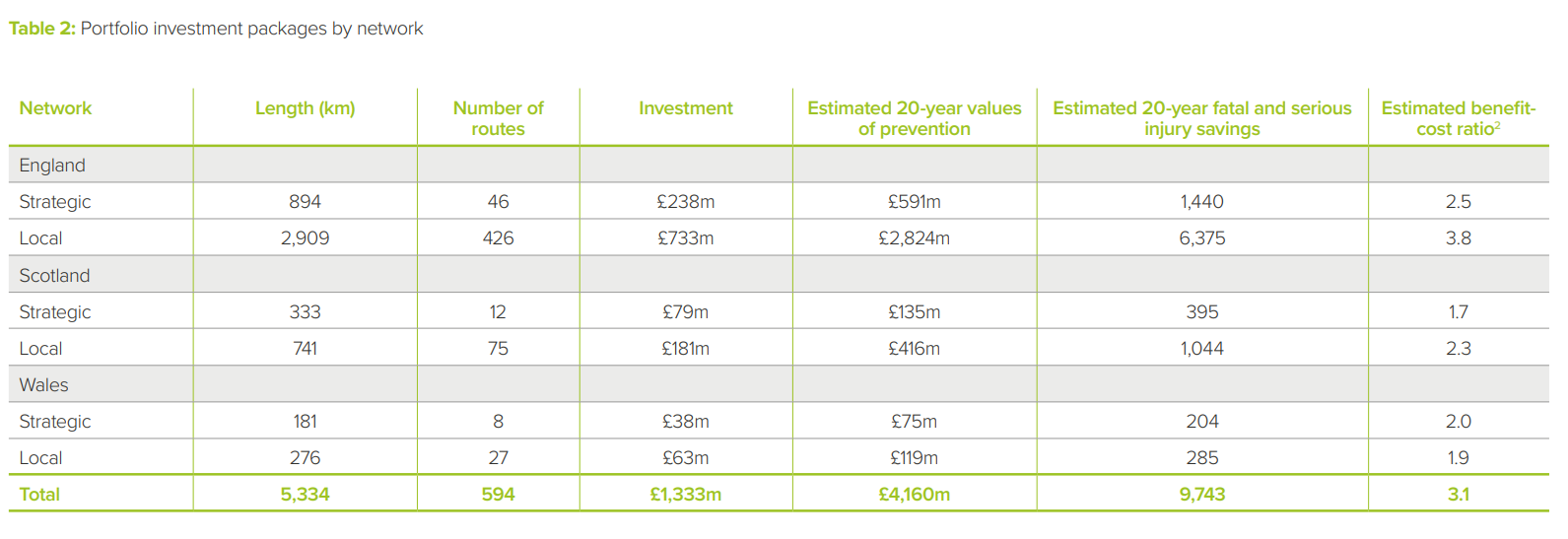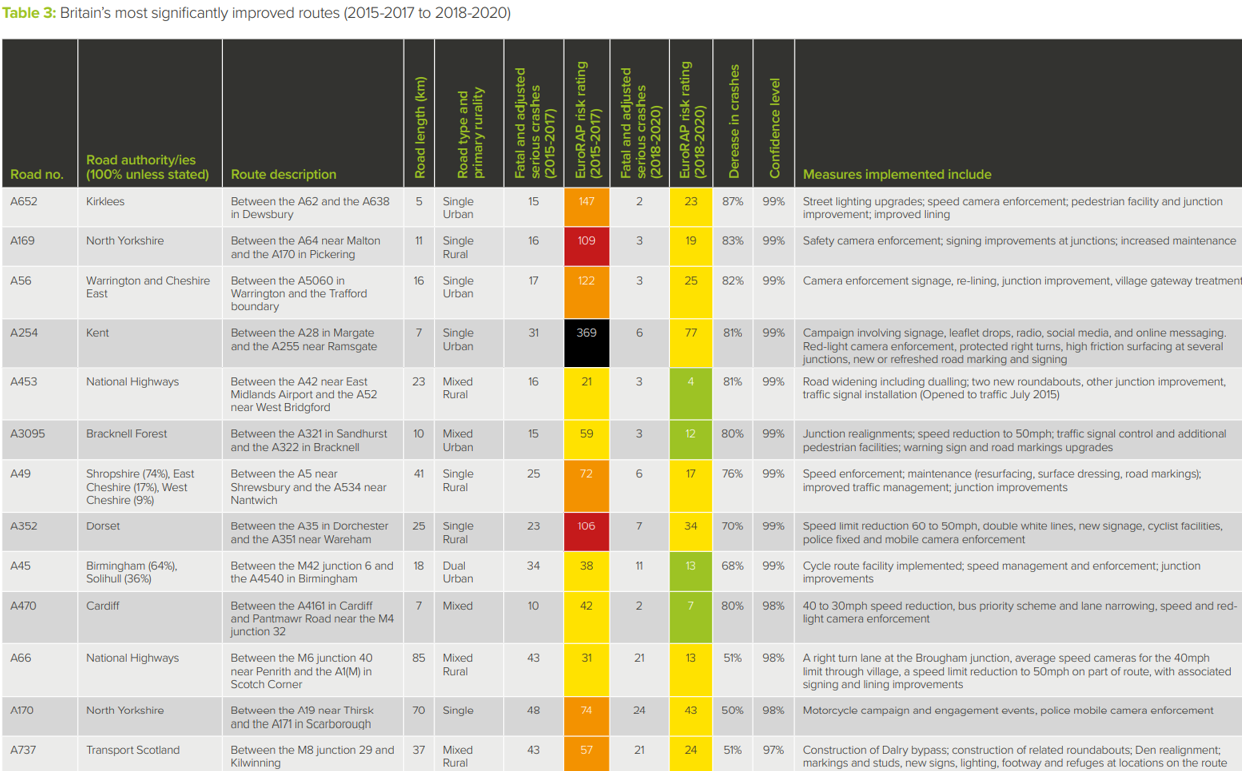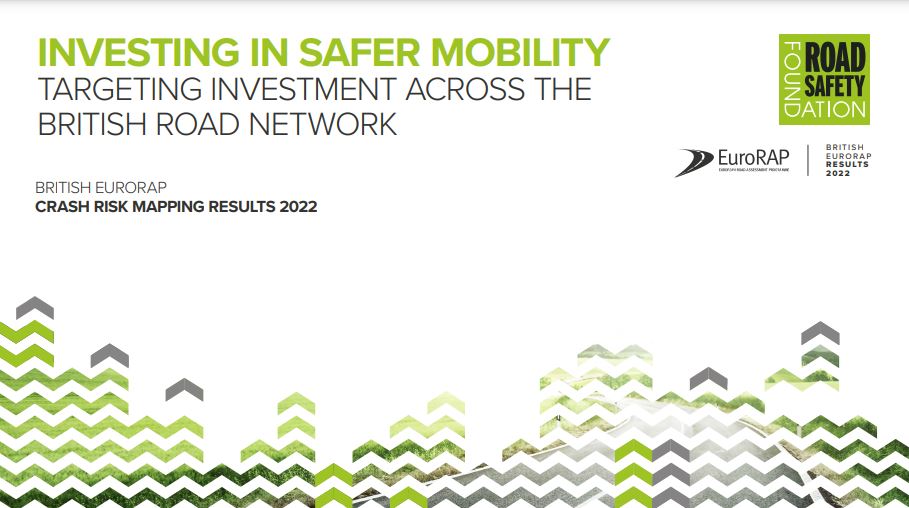Economic policies for appraising investment in travel are outdated, they prioritise quick and convenient car travel and do not reflect modern safe and sustainable values. It is time to re-focus to offer safe, sustainable and inclusive mobility for all road users, according to a report, out today from the Road Safety Foundation.
Investing in Safer Mobility: Targeting investment across the British Road Network says that compared with pre-Covid data, fatal and serious casualties are down but that a return to pre-pandemic deaths and serious injuries is to be expected. However, recent rises in the cost of living may impact future traffic levels, travel speeds and subsequent casualties, and we may see a further effect caused by increased levels of home working, now embedded for many, post-Covid.
“Now is the time to invest in our road infrastructure to support safer and more sustainable mobility for all road users,” says Dr Suzy Charman, Executive Director of the Road Safety Foundation, and one of the report’s authors. “This will reduce the burden on our health care services and, at the same time, support environmental, health and cost-of-living imperatives.”
Road infrastructure measures that reduce the risk of fatal and serious injury are well understood and the investment returns are compelling. Measures such as protecting or clearing roadsides, separating vehicles travelling in opposing directions and designing junctions to be safer offer high opportunities to save lives. Supporting safer walking and cycling through provision of separate facilities or reducing vehicle speeds is key to encouraging modal shift and reducing deaths and injuries for these important user groups.
The charity’s annual crash risk mapping report says that the case for investment in systematic and planned crash reduction is as strong as ever.
The report highlights ten per cent of motorways and “A” roads that are clear priorities for investment. The case for investment is strong, with favourable investment options across Great Britain that would not just save lives but would also address some of the immense societal loss attributable to road crashes each year (around £30 billion in 2021).

Britain’s most improved routes
There are 52 routes that improved significantly from the first data period (2015 to 2017) to the next (2018 to 2020), a total road length of over 1,200 kilometres. Between the two three-year periods, the number of fatal and adjusted serious crashes on these routes fell by 61% from 1,058 to 404. The annual societal value of the crashes prevented was more than £110 million, or more than £90,000 per kilometre road length, with societal value of over £1.6 billion over 20 years. Some examples of significantly improved routes are:

While a small number of improvements involved road widening or the construction of a town bypass, most are modest: street lighting better junction layout for pedestrians, refreshed road markings, better camera enforcement, and focused, localised reductions in speed limits.
The Road Safety Foundation also provides an interactive tool where users can look up the safety rating of A roads and motorways in their area.
About the Road Safety Foundation (RSF)
The Road Safety Foundation (RSF) is a UK charity, founded in 1986, that aims to help reduce road trauma through the implementation of a safe road travel system through:
- Identifying investment packages likely to give high returns and analysing the safety performance of roads over time.
- Providing the approach, tools and training necessary to support road authorities in taking a proactive approach to road risk reduction.
- Undertaking research to progress knowledge and policy.
- Over the last 20 years, the charity has maintained a particular focus on safer road infrastructure through the establishment of the European Road Assessment Programme and the development of the International Road Assessment Programme (iRAP) and its protocols for measuring infrastructure safety. The RSF is responsible for leading the Road Assessment Programme in the United Kingdom, and its work serves as a model of what can be achieved, with key research and innovation being replicated in RAP programmes across the world.
Recently, the charity has:
- Supported DfT’s Safer Roads Fund carrying out surveys of the 50 highest risk local ‘A’ roads in England, training local authorities, and modelling the impact of schemes that together made the £100 million investment portfolio
- Provided support and technical insight to National Highways in their SRN-wide iRAP initiative
- Led the Older Drivers Task Force report with government support to develop the national Older Driver Strategy Supporting Safe Driving into Old Age
For more information visit www.roadsafetyfoundation.org
Twitter: @saferoaddesign

















